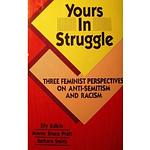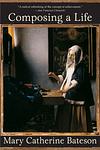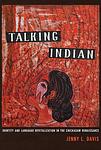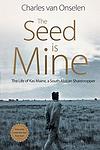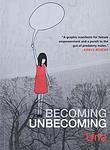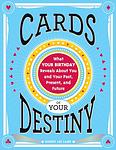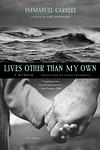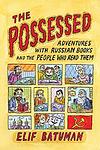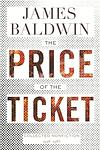The Greatest "Nonfiction, Social & Cultural Fiction" Books of All Time
Click to learn how this list is calculated.
This list represents a comprehensive and trusted collection of the greatest books. Developed through a specialized algorithm, it brings together 300 'best of' book lists to form a definitive guide to the world's most acclaimed books. For those interested in how these books are chosen, additional details can be found on the rankings page.
Genres
Social & Cultural Fiction is a literary category that encompasses novels and stories that delve into the complexities of society and culture, exploring themes such as class, race, gender, and identity within specific social contexts. These narratives often provide a lens through which readers can examine the intricacies of human relationships and the impact of cultural norms and societal structures on individuals and communities. By offering a fictional yet reflective portrayal of real-world social dynamics, this genre invites readers to gain a deeper understanding of the diverse experiences that shape our world. Authors in this category frequently use their characters and settings to comment on contemporary issues, challenge prevailing ideologies, and provoke thought about the possibility of social change, making Social & Cultural Fiction a powerful tool for empathy and a mirror for the ever-evolving human condition.
Countries
Date Range
Reading Statistics
Click the button below to see how many of these books you've read!
Download
If you're interested in downloading this list as a CSV file for use in a spreadsheet application, you can easily do so by clicking the button below. Please note that to ensure a manageable file size and faster download, the CSV will include details for only the first 500 books.
Download-
26. Yours In Struggle by Elly Bulkin, Minnie Bruce Pratt, Barbara Smith
"Yours In Struggle" is a collection of essays that delve into the complexities of building alliances across racial, sexual, and class divides within the feminist movement. The three authors, each from different backgrounds, share their personal experiences and insights on the challenges and necessities of intersectional solidarity. They explore themes of identity, oppression, and activism, emphasizing the importance of understanding and respecting differences while working towards a common goal of equality and social justice. The book serves as a call to action for feminists to engage in self-critical reflection and to commit to an inclusive and diverse movement that addresses the interconnected nature of various forms of discrimination.
-
27. My Place by Sally Morgan
"My Place" is a poignant autobiographical account that traces the personal journey of an Aboriginal woman in Australia as she uncovers her family's past and her own cultural identity. Through a series of interviews and personal reflections, the narrative delves into the experiences of her mother, grandmother, and great-uncle, revealing the hidden stories of displacement, suffering, and resilience that were kept secret due to the shame and stigma associated with their Aboriginal heritage. The book is a powerful exploration of the impact of colonialism and racism on individual lives and serves as a testament to the strength of family bonds and the reclaiming of one's history and sense of self.
-
28. A World Apart by Gustaw Herling-Grudziński
"A World Apart" is a powerful memoir that recounts the author's experiences as a political prisoner in a Soviet labor camp during World War II. Through vivid and harrowing descriptions, the book exposes the brutality and inhumanity of the camp system, as well as the resilience and strength of the prisoners. It serves as a haunting reminder of the atrocities committed during this dark period of history and the enduring human spirit.
-
29. A Small Place by Jamaica Kincaid
This book offers a poignant and provocative look into the complexities of colonialism and its enduring impact on a Caribbean island. Through a blend of personal reflection and social commentary, the narrative delves into the island's history, the exploitation by colonial powers, and the tourism industry's role in perpetuating economic disparities and cultural erosion. The author's incisive prose challenges readers to confront the uncomfortable realities of a postcolonial world, where the beauty of the landscape contrasts sharply with the lives of its native inhabitants, who continue to grapple with the legacies of oppression and cultural identity.
-
30. Dancing At The Edge Of The World by Ursula K. Le Guin
"Dancing at the Edge of the World" is a thought-provoking collection of essays, talks, and reviews by a renowned speculative fiction author, which delves into a wide array of topics ranging from feminism, social responsibility, and the author's perspectives on writing and storytelling to broader reflections on humanity's place in the natural world. The book is a testament to the author's eloquence, intellectual curiosity, and profound insights into the human condition, offering readers a unique blend of literary criticism, personal narrative, and cultural commentary that challenges and inspires. Through her exploration of alternative realities and the power of imagination, the author invites readers to consider new possibilities and the transformative potential of fiction.
-
31. Aids And Its Metaphors by Susan Sontag
In this thought-provoking work, the author extends her previous analysis of the social and psychological implications of disease to the AIDS epidemic. She explores how metaphors and myths surrounding the illness contribute to stigmatizing those affected, often reinforcing existing prejudices and fears. The book delves into the language used to describe AIDS and its impact on public perception, challenging the punitive and militaristic metaphors that frame the disease as a punishment or an enemy to be fought. Through her examination, the author argues for a more empathetic and less judgmental approach to understanding and addressing the AIDS crisis, advocating for compassion and support over moralistic condemnation.
-
32. Composing A Life by Mary Catherine Bateson
"Composing a Life" explores the concept of life as an improvisational art form, drawing on the narratives of diverse women who have successfully adapted to life's unpredictability and challenges. The book examines the ways in which creativity, flexibility, and learning from experience are integral to constructing a meaningful existence. Through the stories of these women, including the author's own experiences, the narrative delves into themes of change, resilience, and the ongoing process of shaping one's life story, emphasizing that life is not a linear progression but a complex, evolving composition.
-
33. Silent Dancing by Judith Ortiz Cofer
"Silent Dancing" is a poignant collection of autobiographical essays and poetry that weave together the memories of a Puerto Rican girl growing up in two worlds: the vibrant, warm island of her birth, and the cold, often unwelcoming urban landscape of New Jersey. Through a series of reflective and lyrical narratives, the author explores the complexities of her bicultural identity, dealing with themes of family, language, and the search for a sense of belonging. Her stories oscillate between the past and the present, capturing the nostalgia for a homeland left behind and the challenges of navigating a new American life, all while trying to hold onto her cultural heritage and personal history.
-
34. Beirut Fragments by Jean Said Makdisi
"Beirut Fragments" is a poignant memoir that delves into the personal experiences of a woman living through the Lebanese Civil War. The narrative captures the daily struggles, fears, and the resilience of civilians caught in the crossfire of a fragmented city. Through her eyes, readers witness the transformation of Beirut from a vibrant cultural hub to a landscape scarred by violence and destruction. The author's reflections offer a deeply human perspective on the impact of war, the loss of loved ones, and the enduring hope for peace amidst chaos. Her story is a testament to the strength of the human spirit in the face of relentless adversity.
-
35. Talking Indian by Anna Lee Walters
The book is a poignant exploration of Native American identity and the complexities of cultural preservation amidst the backdrop of modern America. Through a series of interconnected stories, the narrative delves into the lives of various characters as they navigate the challenges of maintaining their ancestral traditions and language in a society that often marginalizes their heritage. The author weaves a tapestry of personal and communal experiences, reflecting on themes of memory, loss, and resilience, ultimately presenting a heartfelt examination of what it means to "talk Indian" in a world where such identities are constantly under pressure.
-
36. A Chorus Of Stones by Susan Griffin
This book is a profound exploration of the interconnectedness of personal suffering and public tragedy. Blending history, philosophy, and memoir, it delves into the impact of war, the development of the atomic bomb, and the insidious nature of violence in both public and private realms. The narrative weaves together the stories of individuals, including the author's own family history, with larger historical events, revealing how the unspoken and the unspeakable drive the engines of history and personal trauma alike. Through its lyrical and deeply reflective prose, the work challenges readers to consider the ways in which our private lives are inextricably linked to the larger currents of our time.
-
37. Superfiction by Joe David Bellamy
"Superfiction" is a collection of essays that explores the concept of "superfiction," a term coined by the author to describe a new kind of writing that blends traditional storytelling with contemporary literary techniques. The book examines how this new form of fiction can be used to create more complex and engaging narratives, and provides an in-depth analysis of works by various authors who have embraced this style. It also discusses the evolution of literary criticism and the role it plays in shaping our understanding of literature.
-
38. The Seed Is Mine by Charles Van Onselen
"The Seed Is Mine" is a historical non-fiction book that explores the life of a black South African named Klaas, who lived through the tumultuous years of apartheid. Through extensive research and interviews, the author delves into Klaas' personal experiences, struggles, and aspirations, shedding light on the complex dynamics of race, class, and power during this period. The book offers a poignant and intimate portrayal of one man's fight for dignity and justice amidst a system designed to suppress and oppress.
-
39. The Yellow House by Sarah M. Broom
"The Yellow House" is a memoir that tells the story of a hundred years of the author's family and their relationship to home in a neglected area of one of America's most mythologized cities, New Orleans. The narrative follows the author's journey from growing up in the titular house in New Orleans East, a largely ignored part of the city, to her pursuit of education and a career as a journalist, and her eventual return to New Orleans after Hurricane Katrina. The book explores themes of race, poverty, and inequity in America, while also being a deeply personal exploration of family, identity, and place.
-
40. Past And Present by Thomas Carlyle
"Past and Present" is a philosophical and social critique that examines the condition of England during the early 19th century. The author contrasts the medieval past and the then-current state of society, emphasizing the disconnection between material wealth and spiritual well-being. He criticizes the mechanization and industrialization of society, which he believes has led to values centered on profit rather than on human fulfillment and moral integrity. Through historical analysis and social commentary, the work calls for a return to a more meaningful and connected social order based on justice, hard work, and spiritual ideals.
-
41. A Fanatic Heart by Edna O'Brien
"A Fanatic Heart" is a collection of short stories that delve into the complexities of human emotions and relationships, often set against the backdrop of Ireland's lush landscapes and social upheavals. The narratives explore themes of love, betrayal, and the struggles of the human spirit through a variety of characters, from young girls to aging men, each grappling with their own desires, regrets, and search for meaning. The author's lyrical prose and keen insight into the intricacies of the heart and society weave together tales that are both poignant and revealing, offering a window into the soul of her characters and the cultural tensions of the time.
-
42. On Love by Stendhal
The book is a philosophical inquiry into the nature of love, drawing upon the author's personal experiences as well as historical and fictional examples. It dissects romantic attraction, detailing the process of crystallization where ordinary perceptions are transformed into idealized notions of the beloved. The work explores various types of love, from passionate physical attraction to vanity-driven affection, and delves into the psychological aspects of desire, jealousy, and the pursuit of happiness within romantic relationships. The author's analysis offers a blend of cynical and passionate perspectives, reflecting on the complexities and contradictions inherent in love.
-
43. Poems Of Nicolás Guillén by Nicolás Guillén
This collection of poetry delves into the rich tapestry of Afro-Cuban culture, exploring themes of social justice, racial identity, and political struggle. The poet employs a unique blend of lyricism and vernacular language, often incorporating the rhythms of son and Afro-Cuban music, to give voice to the marginalized and oppressed. Through vivid imagery and poignant commentary, the poems reflect on the complexities of Cuba's history and the poet's own experiences, offering a powerful testament to the resilience of the human spirit in the face of adversity.
-
44. Becoming Unbecoming by Una
This graphic novel is a poignant exploration of gender violence, identity, and the journey of healing. It intertwines the author's personal narrative of growing up in the 1970s in Northern England with the historical backdrop of the Yorkshire Ripper, a notorious serial killer targeting women. As the author grapples with her own experiences of sexual abuse and societal pressures, the book delves into themes of misogyny, shame, and the societal tendency to blame victims rather than perpetrators. Through powerful illustrations and candid prose, it offers a deeply personal account of the struggle to overcome trauma and the cultural silence surrounding sexual violence.
-
45. The Future In The Present by C. L. R. James
"The Future in the Present" is a collection of essays and lectures that delve into the social and political issues of its time, with a focus on the dynamics of class struggle, the importance of revolutionary thought, and the role of the state. The work critically examines the potential for human liberation and the necessary conditions for a society to transition towards socialism. It emphasizes the significance of understanding historical and contemporary movements, while advocating for the active participation of the working class in shaping their future. The author's Marxist perspective is evident as he explores themes of power, resistance, and the quest for a more equitable world.
-
46. The Years by Annie Ernaux
"The Years" is a compelling narrative that blends autobiography and collective history to depict the evolution of French society from the 1940s to the early 2000s. Through a blend of personal memories, shared experiences, and common artifacts, the book captures the passage of time and the changes it brings to individual lives and collective identity. The author uses an innovative form of writing, eschewing a traditional linear narrative and personal pronouns, to create a reflective and powerful exploration of memory, aging, and the continuous transformation of societal norms and personal aspirations.
-
47. Facts of Life by Maureen Howard
"Facts of Life" is a novel that tells the story of an Irish-American family living in Bridgeport, Connecticut during the 20th century. It follows their experiences through significant historical events such as the Great Depression, World War II, and the Civil Rights Movement. The novel explores themes of identity, family dynamics, and the American Dream while providing a deep insight into the socio-political climate of the era.
-
48. Lives Other Than My Own by Emmanuel Carrère
"Lives Other Than My Own" is an emotionally charged narrative that explores the lives of two women who have experienced immense loss, one from a tsunami and the other from cancer. The author, through his personal encounters, delves into the raw emotions, resilience, and the profound bonds of family and friendship that emerge from these tragic circumstances. The book is a thoughtful exploration of empathy, offering a poignant look at the strength of human spirit in the face of adversity.
-
49. The Possessed by Elif Batuman
"The Possessed" is a compelling narrative that combines memoir, criticism, and travel writing to explore the author's deep fascination with Russian literature. Through her experiences as a graduate student at Stanford, her travels to Turkey, Russia, and Uzbekistan, and her encounters with other scholars, the author delves into the works of great Russian authors such as Tolstoy, Dostoevsky, and Chekhov, while also reflecting on the nature of literature, identity, and the human condition.
-
50. The Price Of A Ticket by James Baldwin
"The Price of a Ticket" is a collection of essays that delve into the complexities of racial, sexual, and class distinctions in Western societies, particularly in mid-20th-century America. The author, a prominent African American writer and social critic, explores themes of identity, oppression, and liberation through personal narratives and cultural critiques. His incisive prose examines the struggles of black individuals in a society marred by discrimination and injustice, while also offering insights into the broader human condition and the universal quest for freedom and equality. The work serves as a powerful commentary on the social and political issues of its time, many of which continue to resonate in contemporary discourse.
Reading Statistics
Click the button below to see how many of these books you've read!
Download
If you're interested in downloading this list as a CSV file for use in a spreadsheet application, you can easily do so by clicking the button below. Please note that to ensure a manageable file size and faster download, the CSV will include details for only the first 500 books.
Download